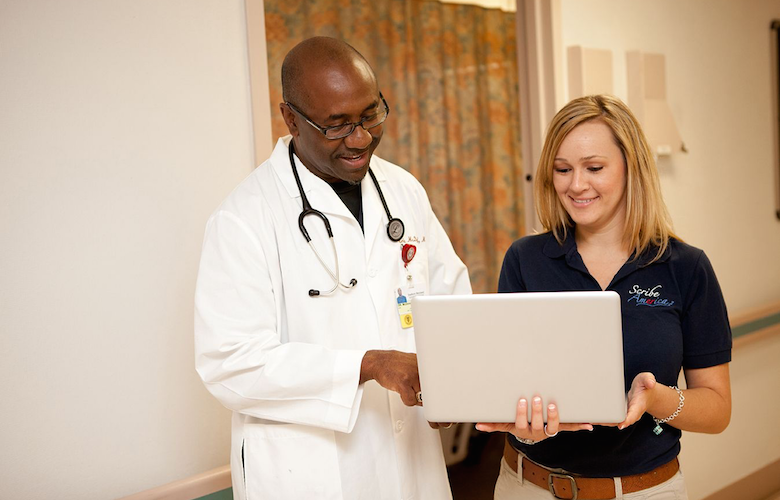

I was looking for an opportunity to work closely alongside physicians and observe their clinical decision making firsthand, which is why it was such a good fit for me. He highly recommended the position as a great way to gain clinical experience before starting medical school. I found out about medical scribing from an alumni of my graduate program, George Squared, who worked as a scribe in the same ENT clinic where I’m currently employed. How did you find out about medical scribing? In general, a medical scribe helps physicians provide more effective and efficient care by saving them time by documenting findings from patient exams and assessments. On a typical day, each physician in the office sees 20 to 35 patients for a wide range of needs, as well as pre-op and post-op consultations. What does a medical scribe do?Īs a scribe in an Otolaryngology clinic (also called “ENT”, for “ear, nose and throat”), I’ve transcribed hundreds of physician-patient encounters, medical histories, and diagnostic test results while working closely to assist pediatric otolaryngologists in the delivery of patient care. The benefits of being a medical scribe include gaining more experience in a medically related environment, earning income to pay off loans, saving money for medical school, and shadowing physicians while working closely alongside them. The medical scribe profession is an emerging field that some medical school applicants pursue while in college or during a gap year. Now, during graduate school, she is working to expand her knowledge of human anatomy and physiology, while also working as a medical scribe in an ENT clinic and volunteering as an EMT in her hometown. During that time, she also served as a Red Cross volunteer at Walter Reed National Military Medical Center. Having grown up in a rural, medically underserved town in Virginia, Morgan appreciated the seminars and discussions focused on creating a more equitable healthcare system with improved access and delivery of medical services. While there, she participated in the NIH Academy where she learned more about the social determinants of health. Medical school: Applying to MD programs for matriculation in the Fall of 2023īio: After graduating from college, Morgan spent two years in biomedical research at the National Cancer Institute, studying mechanisms of drug resistance in Ewing Sarcoma. Graduate: George Mason University (George Squared Advanced Biomedical Sciences Certificate Program) & Georgetown University (M.S. Undergraduate: University of Virginia, 2018

Training Opportunities for Residents and Fellows.ERAS® Tools and Worksheets for Fellowship Applicants.ERAS® Tools and Worksheets for Residency Applicants.

PRECISION SCRIBE MEDICAL SCRIBE SALARY PROFESSIONAL
AAMC PREview™ Professional Readiness Exam.


 0 kommentar(er)
0 kommentar(er)
